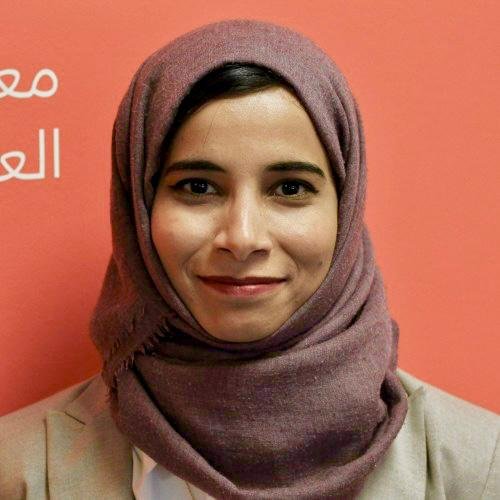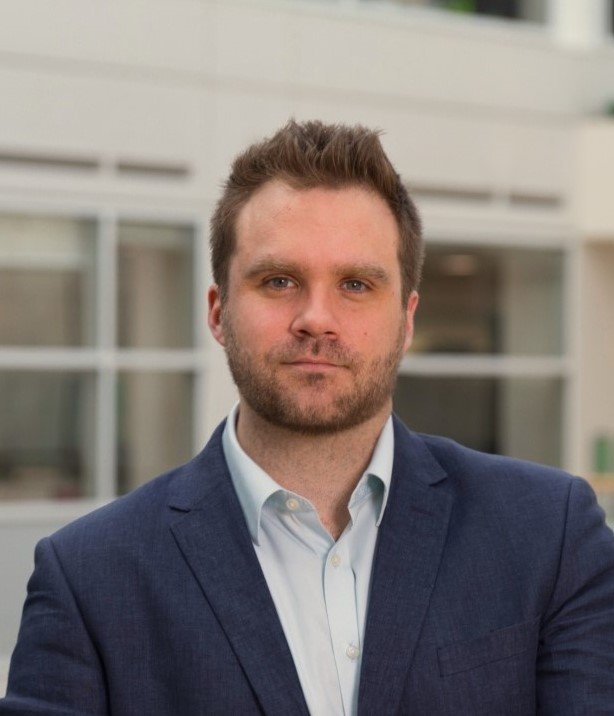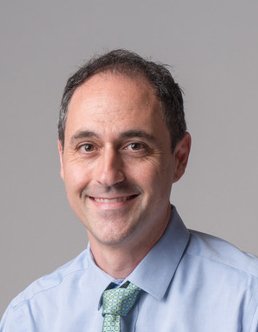Meet Our Experts
-

Professor Koh Lian Pin
Associate Vice President and Chief Sustainability Scientist, NUS.
Prof Koh Lian Pin is Associate Vice President and Chief Sustainability Scientist at the National University of Singapore.
He is also the Director of the NUS Centre for Nature-based Climate Solutions, a research centre that seeks to produce cutting edge-science to inform climate policies, strategies, and actions in Singapore and the Asia-Pacific region, and the director of the NUS Tropical Marine Science Institute.
Bringing 16 years of international research experience in the field of sustainability and environmental science, Prof. Koh returned to Singapore in 2020 under the National Research Foundation’s Returning Singaporean Scientists scheme to join the Department of Biological Sciences at NUS.
He has worked in institutions across Switzerland, Australia, and the United States. He was formerly a Swiss National Science Foundation Professor at ETH Zurich, the Chair of Applied Ecology and Conservation at the University of Adelaide, and Vice President of Science Partnerships and Innovation at Conservation International Foundation.
Prof. Koh is one of the most highly cited conservation scientists in Asia, a TED-Global speaker, Founding Director of ConservationDrones.org, and a World Economic Forum Young Global Leader.
-

Dr Aisha Al-Sarihi
Research Fellow, NUS Middle East Institute
Dr Aisha Al-Sarihi is a research fellow at the National University of Singapore’s Middle East Institute and a nonresident fellow at the Middle East Council on Global Affairs and the Arab Gulf States Institute in Washington.
Her areas of research include political economy, geopolitics, policy and governance of energy, climate and environment, with a focus on the Arab region.
Previously, Al-Sarihi was a research associate at King Abdullah Petroleum Studies and Research Center and a visiting scholar at Georgetown University’s Center for Contemporary Arab Studies and at the Arab Gulf States Institute in Washington. She served as a research officer at the London School of Economics and Political Science’s Middle East Centre.
She authored several publications, including articles in Renewable Energy and the Climate Policy journal. Her research has been featured in different international media outlets including Reuters, Associated Press, Arab News, and Asia Times, among many others.
-

Danielle Yeow
Lead on Climate Change Law and Policy, NUS Centre for International Law
Danielle leads on climate change law and policy issues at the CIL, NUS. She is also an Adjunct Associate Professor, MSc (Environmental Management), NUS; Senior Advisor at the Albright Stonebridge Group); and Consultant, KGP Legal (member of Inter-Asia Law Alliance).
Danielle has over 25 years of public sector experience providing legal and strategic advice across a range of issues including trade and investment, climate change and environment, human rights and law of the sea. This included representation at negotiations and dispute proceedings. She was the lead counsel in multiple negotiations at bilateral, regional and multilateral levels, including the TPP and CPTPP FTA, UNFCCC and Paris Agreement meetings. She has also acted as lead counsel for Singapore (Third Party) in WTO panel proceedings and advisor in ITLOS proceedings.
Danielle is a member of the panel of arbitrators (UK-Singapore FTA), and a Council member, ILA Singapore branch. She was formerly an alternate member of the Paris Agreement Implementation and Compliance Committee.
Prior to leaving the public sector, Danielle served as the Deputy Director-General of the International Affairs Division of the Singapore Attorney-General’s Chambers, Singapore. Her previous roles included that of Deputy Chief Executive (Intellectual Property Office, Singapore), District Judge, Justices’ Law Clerk and prosecutor.
-

Melissa Low
Research Fellow, NUS Centre for Nature-based Climate Solutions
Melissa Low is a Research Fellow at the National University of Singapore’s (NUS) Centre for Nature-based Climate Solutions. At the Centre, Melissa leads Continuing Education and Training. She previously worked at the Energy Studies Institute, NUS where she carried out research projects on a range of energy and climate issues of concern to Singapore and the region. She has participated in the United Nations Framework Convention on Climate Change (UNFCCC) Conference of Parties (COP) for over a decade and is an active sustainability thought leader, authoring, publishing and presenting at various forums.
She is the Designated Contact Point for NUS’s accreditation to the UNFCCC and serves on the nine-member Steering Committee of the Research and Independent Non-Governmental Organisation (RINGO) Constituency under the UNFCCC. She is also is a Member of the International Civil Aviation Organisation’s Committee on Aviation Environmental Protection (CAEP) Long Term Aspirational Goal Task Group (LTAG-TG). Melissa holds an LLM in Climate Change Law and Policy (with distinction) from the University of Strathclyde, MSc in Environmental Management and BSocSci (Hons) in Geography from NUS. For her Master’s thesis on past and contemporary proposals on equity and differentiation in shaping the 2015 climate agreement, Melissa was awarded the Shell Best Dissertation Award 2013. She is currently pursuing a PhD part-time at the NUS Department of Geography.
In 2021, Melissa was conferred the NEA EcoFriend Award and the Public Service Medal (Pingat Bakti Masyarakat) for her contributions towards environmental sustainability, climate change awareness and impact on youth. She serves as Chair of the Climate Action SG Alliance, is an Advisory Committee Member for the MSE SG Eco Fund, a Council Member of the 16th and 17th National Youth Council and Committee Member of the Speak Good English Movement. She is also Chief Curator of the National Youth Council’s Young ChangeMakers Programme and a panellist on the Speak Good English Movement Programmes Evaluation Panel.
Outside of work, Melissa started an eco-friendly/ social book swop movement in Singapore, called Books and Beer, which has been featured in The Straits Times, The Business Times, Bangkok Post and The Wall Street Journal’s Scene Asia Blog.
-

Professor Nick Watts
Director of the Centre for Sustainable Medicine, NUS Yong Loo Lin School of Medicine
Prof Watts is the Director of the Centre for Sustainable Medicine at NUS Medicine, where he leads the Centre’s mission of shaping the growing field of sustainable medicine, both locally and internationally.
Prof Watts has more than a decade of expertise working at the intersection between climate and health. He comes to the Centre from his role as Chief Sustainability Officer of the NHS in the United Kingdom, where he spearheaded their efforts to deliver low-carbon healthcare and led the Greener NHS Team with a budget of over S$1 billion.
Prof Watts is a medical doctor, a Fellow of the Royal College of Physicians' Faculty of Public Health, and has worked as the Executive Director of the Lancet Commission and the Lancet Countdown on Health and Climate Change where he established and led the multi-centre research collaboration across 51 academic institutions and UN agencies, dedicated to tracking progress on health and climate change.
Expertise areas:
Climate and Health Policy
Delivery and Implementation of Healthcare Decarbonization and Adaptation
Climate Change Education, Advocacy and Engagement with Health Professionals
-

Dr Kimberly Fornace
Lead, Climate, Environment and Health Programme, NUS Saw Swee Hock School of Public Health
Dr Fornace’s research focuses on the impact of environmental change on infectious disease dynamics. She uses a range of Earth Observation data, geostatistical methods and machine learning approaches to monitor environmental change and assess the impacts on infectious disease transmission.
Based in Malaysian Borneo for over 6 years, a core focus of this work has been characterising the spatial epidemiology of emerging zoonotic malaria in Malaysia and the Philippines and evaluating associations with deforestation and other land use changes.
Her current research program aims to identify how environmental data can be integrated into infectious disease surveillance systems.
Expertise Areas:
Environmental Impact on Infectious Diseases
Spatial Epidemiology of Zoonotic Malaria
Geostatistical Methods and Machine Learning in Disease Dynamics
Integration of Environmental Data into Disease Surveillance
-

Associate Professor Yann Felix Boucher
Co-lead, Climate, Environment and Health programme, NUS Saw Swee Hock School of Public Health
He is also Principal Research Fellow, Singapore Centre for Environmental Life Sciences Engineering.
Assoc Prof Boucher is a bacterial epidemiologist with expertise in waterborne diseases and environmental surveillance. He has worked with the International Centre for Diarrhoeal Disease Research, Bangladesh (ICDDR,B) for over a decade, studying the ecology of cholera. There he investigated the link between floods and droughts to the spread of enteric diseases. He uses genomic and metagenomic sequencing to understand how bacterial pathogens evolve and spread in the environment and in human populations.
Expertise Areas:
Cholera and Waterborne Enteric Diseases
Molecular Epidemiology
Environmental Surveillance
Effects of Environmental Changes on Vibriosis
Microbial Evolution
-

Associate Professor Jason Lee
Assoc Prof Lee co-leads the Human Potential Translational Research Programme at NUS Medicine and directs the Heat Resilience and Performance Centre (HRPC), which was launched in January 2023. The HRPC will also lead the new Southeast Asian node aimed to scale up efforts to manage the complex health risks posed by rising ambient temperatures. Assoc Prof Lee also chairs the Scientific Committee on Thermal Factors at the International Commission on Occupational Health and is on the management committee of the Global Heat Health Information Network.
To date, Assoc Prof Lee has published extensively on topics related to the physiological demands associated with heat stress and how humans adapt to ensure optimal performance and survival. His work has been translated into policies such as training directives, training safety regulations and lesson plans. The knowledge gained from his research has also benefitted several governmental agencies.
Expertise Areas:
Extreme Human Physiology
Heat Stress Management
Military and Occupational Performance and Safety
Heat Effects on Health and Work Productivity

Questions? Requests?
Get in touch.
Eastwest Public Relations
nus-cncs@eastwestpr.com
